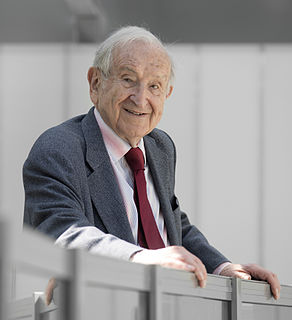A Quote by Ralph Waldo Emerson
The city is always recruited from the country. The men in cities who are the centres of energy, the driving-wheels of trade, politics or practical arts, and the women of beauty and genius, are the children or grandchildren of farmers, and are spending the energies which their fathers' hardy, silent life accumulated in frosty furrows in poverty, necessity and darkness.
Related Quotes
The most delicate beauty in the mind of women is, and ever must be, an independence of artificial stimulants for content. It is not so with men. The links that bind men to capitals belong to the golden chain of civilization,--the chain which fastens all our destinies to the throne of Jove. And hence the larger proportion of men in whom genius is pre-eminent have preferred to live in cities, though some of them have bequeathed to us the loveliest pictures of the rural scenes in which they declined to dwell.
When I went to first grade and the other children said that their fathers were farmers, I simply didn't believe them. I agreed in order to be polite, but in my heart I knew that those men were impostors, as farmers and as fathers, too. In my youthful estimation, Laurence Cook defined both categories. To really believe that others even existed in either category was to break the First Commandment.
If farmers become weak the country loses self-reliance but if they are strong, freedom also becomes strong. If we do not maintain our progress in agriculture, poverty cannot be eliminated from India.But our biggest poverty alleviation programme is to improve the living standard of our farmers. The thrust of our poverty alleviation programmes is on the uplift of the farmers.
...our cities of the present lack the outstanding symbol of national community which, we must therefore not be surprised to find, sees no symbol of itself in the cities. The inevitable result is a desolation whose practical effect is the total indifference of the big-city dweller to the destiny of his city.
Speaking to the Heart is a great encouragement to men who want to be better husbands and fathers. It is both a practical job description of fatherhood-showing how fathers build strength in their children-and an inspiring call to family leadership. Any father who takes this book to heart and puts its wisdom into action will be known to his children as a great man.
The conditions of city life may be made healthy, so far as the physical constitution is concerned; but there is connected with the business of the city so much competition, so much rivalry, so much necessity for industry, that I think it is a perpetual, chronic, wholesale violation of natural law. There are ten men that can succeed in the country, where there is one that can succeed in the city.
For as long as men and women have talked about war, they have talked about it in terms of right and wrong. And for almost as long, some among them have derided such talk, called it a charade, insisted that war lies beyond (or beneath) moral judgment. War is a world apart, where life itself is at stake, where human nature is reduced to its elemental forms, where self-interest and necessity prevail. Here men and women do what they must to save themselves and their communities, and morality and law have no place. Inter arma silent leges: in time of war the law is silent.
... Washington was not only an important capital. It was a city of fear. Below that glittering and delightful surface there is another story, that of underpaid Government clerks, men and women holding desperately to work that some political pull may at any moment take from them. A city of men in office and clutching that office, and a city of struggle which the country never suspects.








































